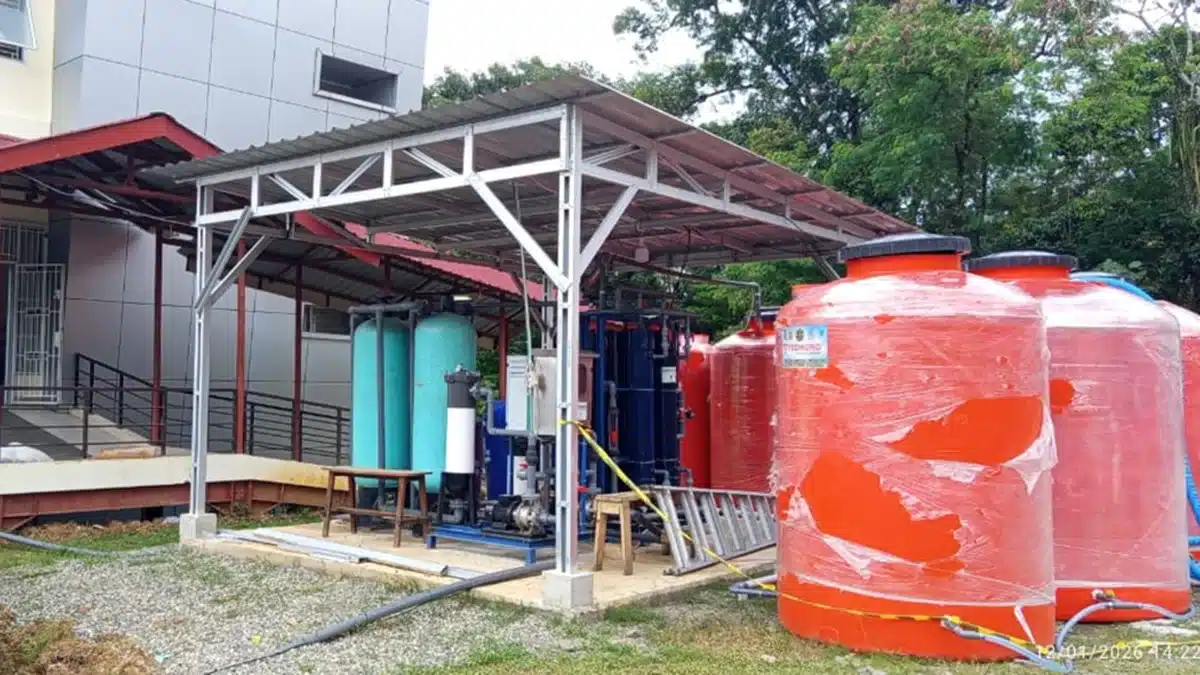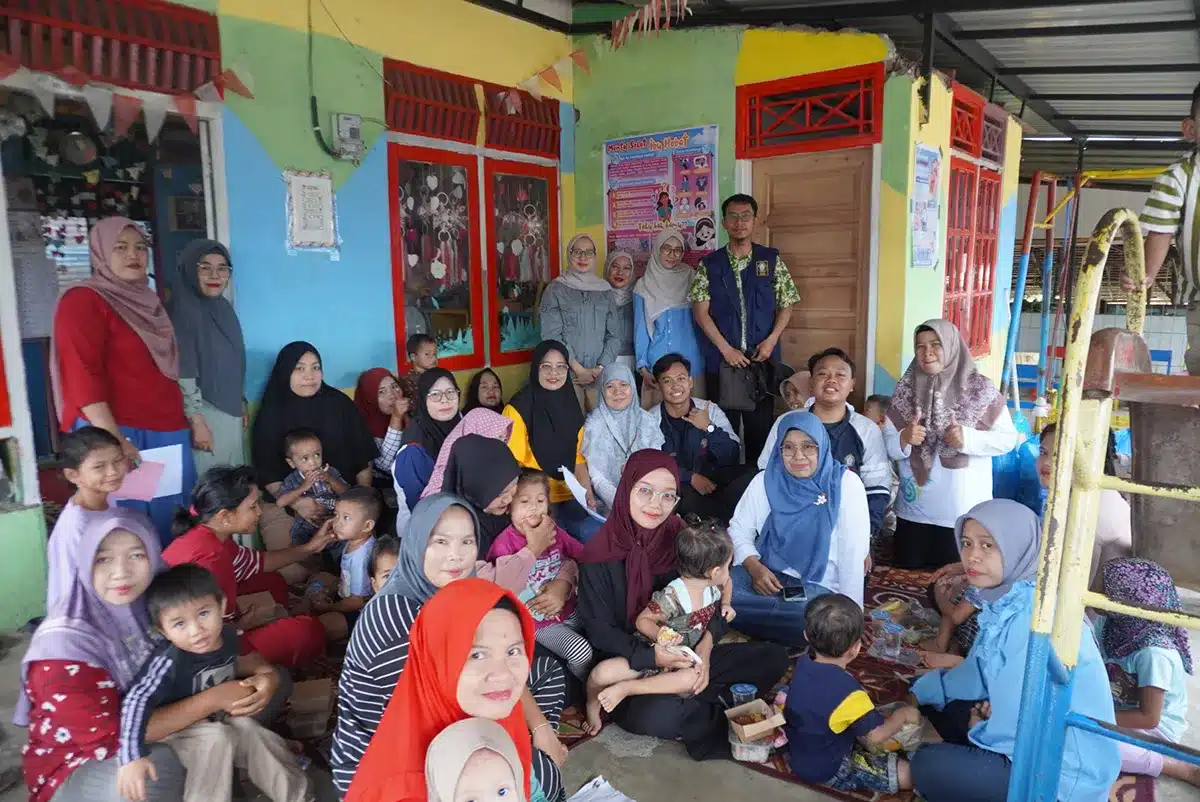“The commemoration of the 2022 National Nutrition Day is our dedication as health workers. Stunting and obesity in Indonesia are still quite high in the number of cases, so at this moment we invite a nutritionist to provide material on balanced nutrition. We hope that it will be a valuable resource for all of us,” said the President Director of the Diponegoro National Hospital (RSND), Diponegoro University (UNDIP), Dr. dr. Sutopo Patria Jati, M.M., M.Kes. in the 2022 National Nutrition Day event organized by the RSND UNDIP in Tembalang District Office (25/1).
Present as a keynote speaker, the Chair of the Semarang City Health Forum, Krisseptiana Hendrar Prihadi, S.H, M.M. in her speech conveyed about the joint action to prevent stunting and obesity. “Stunting and obesity cases are our shared responsibility as a community, it is important to find a way on how to create a young and healthy generation. Of course, this activity is very beneficial for us in providing education about stunting, obesity as well as balanced nutrition,” she said.
dr. Annta Kern Nugrohowati, M.Sc., SpGK, as the head of the event committee said this event was a collaboration between the RSND Undip, Tembalang District Office and the Semarang Healthy City Forum.
“In the sub-district there are Posyandu, PKK and Dharma Wanita cadres, and all of them are present in the event with the theme “Balanced Nutrition, Healthy Family, Strong Country” to form joint action to prevent stunting and obesity. In creating a healthy family, the mother’s roles to provide food and manage family meals are very important. Stunting and obesity are still problems to be solved by this nation, so this theme is very relevant where we provide education to mothers on how to provide a good diet for the family,” she said.
The speaker of the talk show in this event is dr. Enny Probosari, M.Sc., MED, Sp.GK (K). In her material about “Healthy Nutrition for Healthy Families”, she conveyed that currently Indonesia was faced with a double nutritional burden, a condition where there are problems of undernutrition and overnutrition that occur at the same time.
“Stunting is a chronic nutritional problem due to lack of nutritional intake over a long period of time. The problem of stunting occurs from the womb and the effect will only be seen when the child is two years old,” she explained.
dr. Enny explained the causes of stunting according to the World Bank include poor parenting practices, lack of knowledge about health and nutrition before and during pregnancy, 60% of children aged 0-6 months do not receive exclusive breastfeeding, and 2 out of 3 children aged 0-24 months do not receive weaning food (MP-ASI). In addition, there are limited quality health services and early learning, where 1 in 3 children aged 3-6 years is not registered in early childhood education, 2 out of 3 pregnant women do not consume adequate nutrients, pregnant women do not participate well in Posyandu and they do not have access to immunization services. The other factor is lack of access to nutritious food also, from the survey results 1 in 3 pregnant women is anemic and cannot afford nutritious food because it is quite expensive. Lack of access to clean water and sanitation can also led to stunting, it is recorded that 1 in 5 households still defecate in open spaces and 1 in 3 households do not have good access to clean drinking water.
“Regarding obesity, its impact is an increase in free fatty acids so that it inhibits secretion, obese women have a risk of hypertension 3-6 times compared to women with normal weight. Obese people have narrow airways due to fat accumulation in several muscles in the airways which causes decreased learning achievement. Excess energy is stored as fat, which is the accumulation of excess fat due to an imbalance between energy intake and energy used for a long time. The increase in obesity rates is generally associated with food intake containing energy that exceeds daily needs,” she explained.
“Pay attention to balanced nutrition, in principle, if we have balanced nutrition, it means that the food we consume contains good nutrition, namely carbohydrates, proteins, fats, proteins and minerals. In addition, the portion and time of eating, the diversity or variety of food, fluids and fiber, both from vegetables and fruit also need to be considered,” concluded dr. Enny. (Lin – Public Relations)








